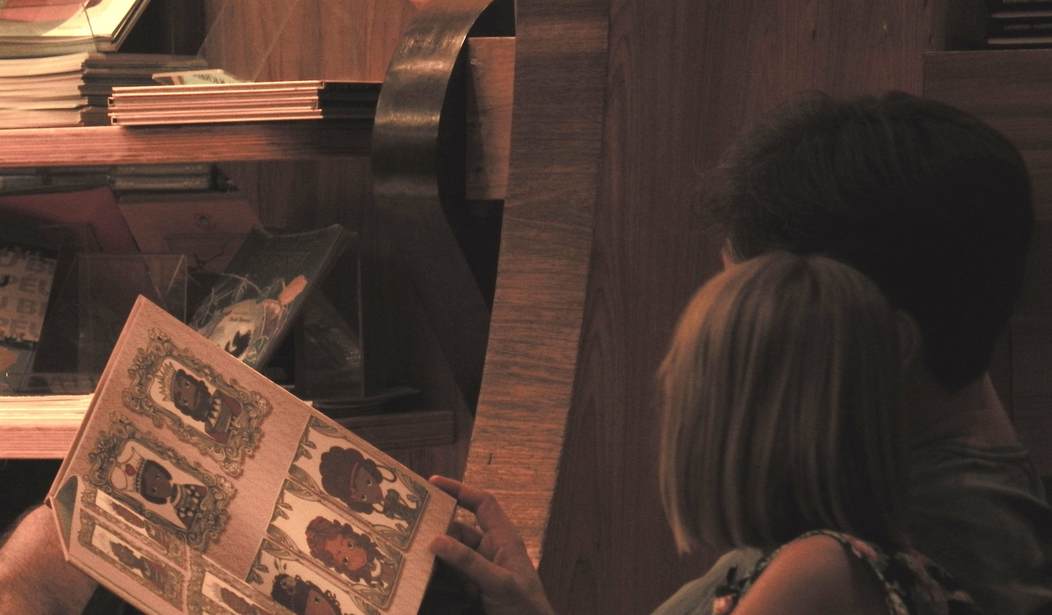The obvious solution is to teach your children yourself.
By the time younger son went to school, despite all the failings of the older child’s schooling, we were afraid to homeschool.
Why?
Because as in everything else that parents used to do at home and for which now people need a degree, there was a forest of regulations and “must learns” that made me terrified that my kids would come to the age of entering college and be told that they couldn’t enter because they hadn’t learned to warble their knabble back in fourth grade.
Sure, most of the “required” stuff was ridiculous button counting. Which is why I was afraid I couldn’t do it/would forget to do it.
So we kept them in school and taught them at home, in what I would call a “mixed” solution. (More on that later.)
This continued until younger son ran into issues (mostly consisting of being harassed by 18 girls, and having the school administration side with the girls) in 6th grade. The situation turned toxic, and we decided to bring him home to homeschool.
And then I realized it wasn’t nearly as difficult as it had been portrayed, and in fact, it wasn’t nearly as difficult as it had been when the kids started school.
There were at the time (there might no longer be. Colorado did some weird things to homeschooling in 2008) these organizations called “umbrella schools.” They supervised/approved your curriculum, reminded you of things that were required, made sure the kids took the required-by-the-state exams, and certified your kids as having passed various grades.
This is particularly important if you are unschooling (i.e. integrating lessons as part of everyday life) or if your kid is like mine was, a free-grazer. As it was the umbrella school lady kept pulling out her hair because she wasn’t sure how to classify two months spent studying the mechanisms by which effects were achieved in Shakespearean and ancient Greek plays, and comparing the two.
There are other options we didn’t use, including an online state school, in which your child can take lessons at home on his/her own that exactly follow the state curriculum. (Not sure this is better than sending them to school, but it could be a side thing, just to make sure they have the right certifications.)
But there are a ton of other online options if you only explore. My son took Greek (and I took Greek and Latin) in an online school that no longer exists. In fact, there are online courses for everything, from math to Chinese. We also made a lot of use of Great Courses teaching.
After a year (in which he completed two years) my son chose to enter a local high school, because it had a dual college/high school program, and he wanted to study engineering and enter the robotics team.
By then, though, I’d realized what a mistake I’d made in not homeschooling.
If you are afraid of homeschooling, don’t be. Investigate it in your area. I bet you’ll find all sorts of options, both local and online, that make sure your child learns what he/she needs to, probably better than in public school.
As for the vaunted “socialization,” there are many ways to socialize, and they don’t have to be with peers. Although my family fell outside the scope of homeschooling groups in our area, which seemed to be divided between religious and “unschoolers” (we are religious, that was simply not the main reason we were homeschooling) we found plenty of ways for son to socialize: from volunteering to taking local art classes. He did okay, even if he went back to school with a rather more mature social style than his peers.
After son had gone back to school I found a third “mixed” option for homeschooling/public school, which I wish I had thought of up front.
About 2/3 of this elite, highly demanding program was kids who had entered school for the first time in 10th grade. This seemed to be how parents who’d homeschooled ensured the kids had the credentials needed to enter colleges that might frown at homeschooling (and a lot still do).
In fact, that had been my main fear, since a lot of homeschooling parents seemed to count it a victory if their children finished high school and could hold down a retail job. It is a victory compared to living on the streets or in mom and dad’s basement forever, but my sons showed an interest in STEM very early on, so I wanted to make sure they had that option open to them.
The trick of homeschooling through ninth grade, then enrolling them in your local high school (preferably in a gifted/exclusive program) seems to work. Most of my son’s classmates got into very prestigious schools or programs.
But what if you can’t homeschool at all? You both have jobs because taxes/health insurance (but I repeat myself) are insane; there is no way you could live on one income; if you leave the kids alone at home, they’ll just goof off.
Well, then you’re into the “mixed option” which means teaching your kids after school. It’s a lot of work because it means correcting the crazy stuff they were taught in school. But it can be done.









Join the conversation as a VIP Member